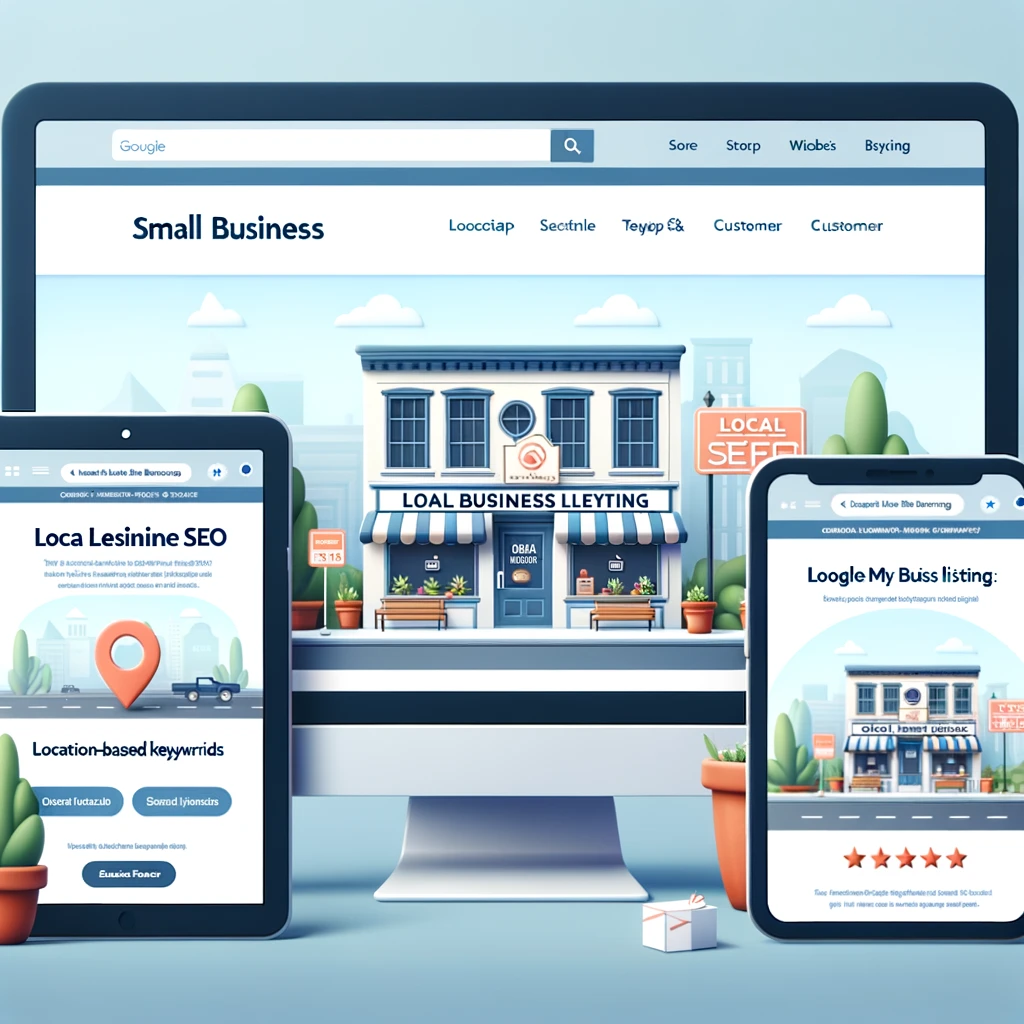In today’s competitive market, local SEO for small businesses is crucial for attracting customers within your geographical area. Optimizing your website for local search can significantly enhance your visibility and drive more targeted traffic to your business. Here’s a comprehensive guide to help you optimize your website for local SEO and boost your online presence.
Why Local SEO is Important for Small Businesses
Local SEO helps small businesses promote their products and services to local customers at the exact time they’re looking for them. It enables you to compete effectively with larger businesses and reach potential customers in your area. Implementing local SEO for small businesses can increase your visibility in local search results and drive foot traffic to your physical location.
1. Claim and Optimize Your Google My Business Listing
Your Google My Business (GMB) listing is one of the most important factors for local SEO. Ensure your business name, address, and phone number (NAP) are accurate and consistent. Add relevant categories, a compelling business description, and high-quality images to your profile.
Optimize your GMB listing by regularly updating it with new photos, posts, and responding to customer reviews. This can improve your local ranking and provide valuable information to potential customers. Learn more about optimizing your GMB listing.
2. Use Local Keywords
Research and incorporate keywords that include your location, such as «bakery in [City]» or «best [service] in [City].» Include these keywords naturally in your content, meta descriptions, and headers. This helps search engines understand your business’s relevance to local search queries.
Use tools like Google Keyword Planner or Ahrefs to find local keywords that are relevant to your business. Including local keywords in your titles, URLs, and throughout your content can improve your visibility in local search results.
3. Create Location-Specific Pages
If your business has multiple locations, create separate pages for each location. Include unique content and NAP information for each page. This can help each location rank individually for local search queries.
Location-specific pages should include a map, address, phone number, business hours, and a brief description of the services offered at that location. Highlight any local events, news, or promotions to make the content relevant and engaging.
4. Optimize for Mobile
Ensure your website is mobile-friendly, as many local searches are conducted on mobile devices. Use responsive design and optimize page load speeds to provide a seamless experience for mobile users.
Mobile optimization involves using flexible grids, layouts, and media queries to ensure your website looks and functions well on all devices. Test your site on various mobile devices to ensure it’s user-friendly and loads quickly.
5. Get Reviews and Testimonials
Encourage satisfied customers to leave reviews on Google, Yelp, and other relevant platforms. Responding to reviews promptly and professionally can improve your online reputation and attract more customers.
Positive reviews can boost your credibility and influence potential customers’ decisions. Display testimonials on your website to build trust and highlight the quality of your products or services.
6. Build Local Backlinks
Collaborate with local businesses, organizations, and influencers to get backlinks to your website. Participate in local events and sponsor community activities to gain exposure and links.
Local backlinks from reputable sources can improve your website’s authority and search engine ranking. Engage in local partnerships, write guest posts, and get listed in local directories to build a strong backlink profile.
7. Use Schema Markup
Implement schema markup to provide search engines with detailed information about your business. Use LocalBusiness schema to enhance your search listings with additional information.
Schema markup helps search engines understand your content and can improve the visibility of your listings with rich snippets. Use tools like Google’s Structured Data Markup Helper to implement schema markup correctly.
8. Engage on Social Media
Maintain an active presence on social media platforms popular in your area. Share local content, engage with your audience, and promote your business events and offers.
Social media engagement can drive traffic to your website and improve your local SEO. Share updates, photos, and promotions to keep your audience engaged and informed about your business.
9. Optimize Your Website Content
Create high-quality, informative, and engaging content relevant to your local audience. Include local news, events, and community activities in your blog posts and articles.
Regularly updating your content with local information can improve your relevance for local search queries. Write blog posts, create videos, and share infographics to provide value to your local audience.
10. Monitor and Analyze Your SEO Efforts
Use tools like Google Analytics and Google Search Console to track your local SEO performance. Adjust your strategies based on the data and insights you gather.
Monitoring your SEO efforts helps you understand what’s working and what needs improvement. Analyze your traffic sources, user behavior, and conversion rates to optimize your website continuously.
By following these steps, you can effectively optimize your website for local SEO and attract more customers from your area. Local SEO for small businesses is an ongoing process, so regularly update your content and strategies to stay competitive. For more tips on building a successful website, visit the Outdriver homepage.




0 comentarios